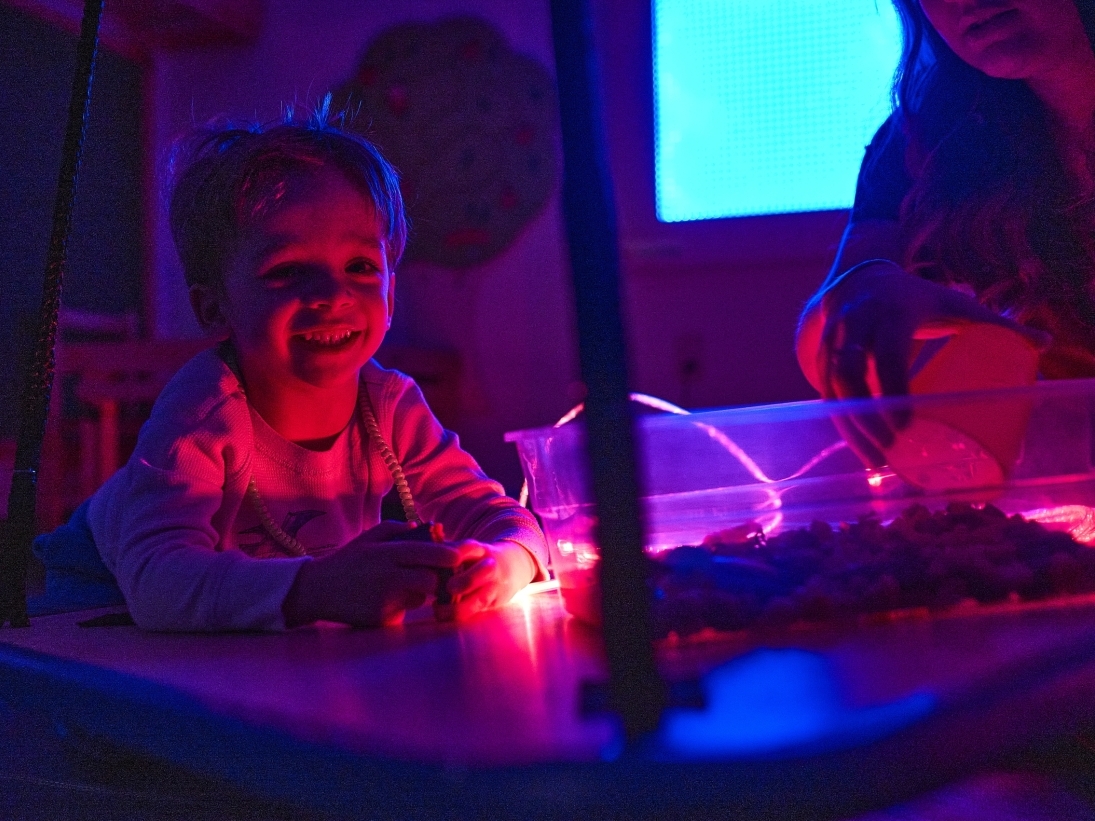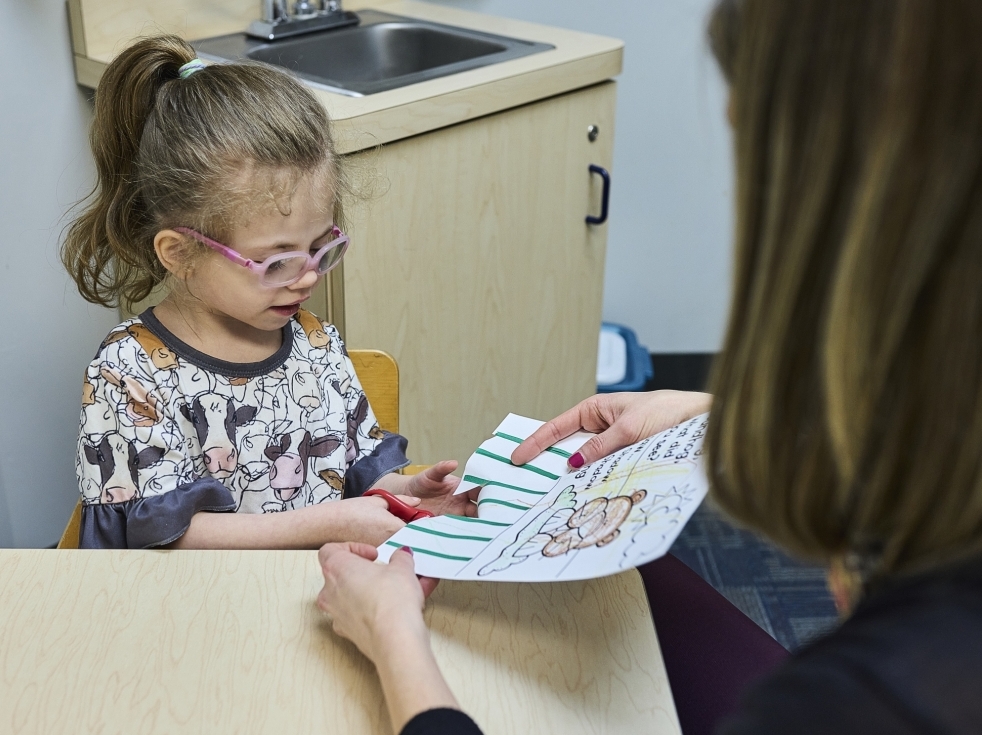Pediatric occupational therapy (OT) aims to help children achieve independence for play, self-care, socialization, and leisure. OT promotes the development of fine motor, sensory motor, and visual motor skills that children need to engage in meaningful activities of daily life in their home, school, play, and community environments.
Pediatric occupational therapy facilitates:
- oral-motor development and hand skills for feeding and drinking
- muscle strength, range of motion, and endurance for fine motor hand/finger skills
- eye-hand coordination for handwriting and recreational tasks
- self-help and life skills such as bathing, dressing, feeding, grooming, etc.
- sensory processing and behavioral strategies for improved attention, concentration, and behavioral regulation for everyday tasks and play activities
- social and play skills for peer interaction
- organizational abilities to manage the environment
- visual memory and sequencing skills to improve reading and writing skills
CTC ‘s pediatric occupational therapists have received special training in Sensory Processing Disorders, Auditory/Listening Therapy and Feeding Therapy.





